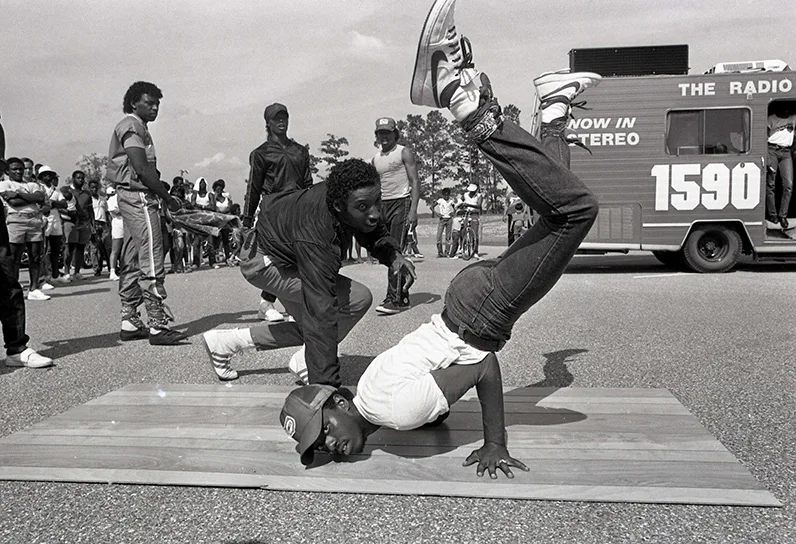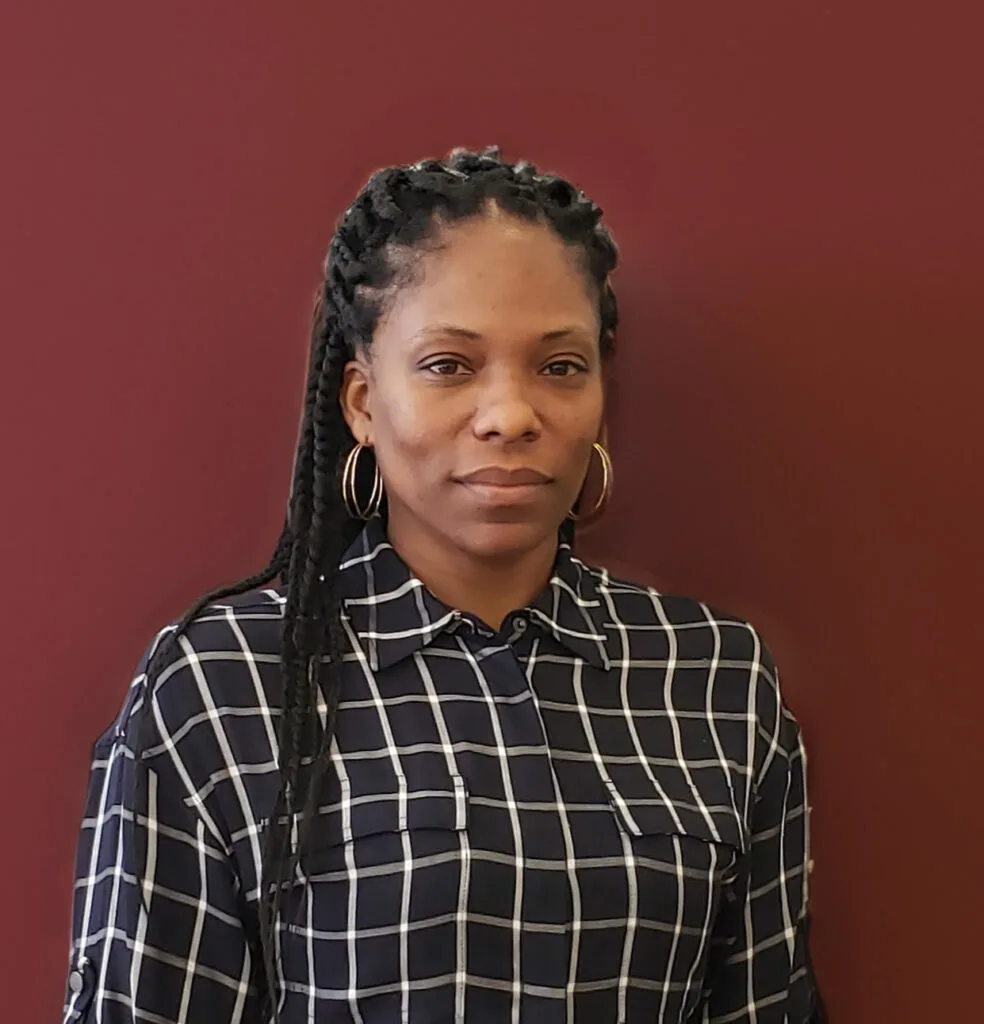Nelson II also intends to add to the team an additional staffer who can update the exhibit spaces – something Zaid plans to get involved with as well.
During a recent tour of the third floor, Nelson II pointed out some dated artwork in the Western Legacies Museum, a museum housed on the library’s third floor. “It was done in 2003, and has not been changed since,” he said, laughing with a touch of frustration. “It’s not discrediting anything that’s here; it’s just time for an update.”
He also pointed out a temporary exhibit in the Charles and Dorothy Cousins Gallery, which he plans to replace with a revolving exhibit by local artists. “We want this to be an active space where people know they can come in and expect to see some new art or an artist who they’re familiar with.”
On the same floor is a small theater where a class of students might watch a film; one of his other goals for that area is to find up-to-date technological equipment. “What’s the level of remodel?” he wondered aloud. “Is it just taking down graphics and putting up new skins of images, or are we moving some walls and some things like that?” Gesturing to clunky metal rectangles protruding from the ceiling, he said: “If it’s not a VHS player, it’s a DVD player or some system akin to it. And so what does it look like to remodel that? Is it something where we could change one unit, or do we need to completely remove it and then retool it because it’s so old?”
Another goal is to unite the first-floor branch library with the upper floors housing the museum, gallery and special collections. “Ideally, there should be content that people can consume on the third floor, and then you can read a book about it on the second floor, and then you could take a book home on the first floor … we really want to stretch content through all three floors.”
Four other African American research libraries
The work Nelson II, Nelson and Zaid are doing in Denver is similar to what other archivists, research librarians, programming associates and their supervisors are doing in the country’s four other African-American research libraries in Fort Lauderdale, Houston, New York and Atlanta.
 Houston African American History Research Center
Houston African American History Research CenterIn Ft. Lauderdale, for example, the African-American Research Library and Cultural Center, part of Broward County’s public library system, is 60,000 square feet large and houses both an auditorium and an exhibit area. Its collections include 3D models of African artifacts; a large collection of Haitian art; an Alex Haley collection with eight of his unfinished manuscripts; over one million “ephemera and manuscripts” in English, Kreyol and Portuguese – including posters, postcards, obituaries, stamps and sheet music. Later this month, it will have a sci-fi and comic convention.
In New York, the Schomburg Center for Research in Black Culture, part of the New York Public Library system, is featuring the exhibit, Marking Time: Art in the Age of Mass Incarceration, by artists who have and haven’t been incarcerated. Its collection focuses on the Americas, the Caribbean, and Sub-Saharan Africa, and its digital collection includes papers entitled “The Negro in Business;” “Nigeria: Its Peoples and Problems;” and “The Story of the Illinois Federation of Colored Women’s Clubs,” which dates back to 1900.

At Houston’s African American History Research Center, part of that city’s public library, people can record oral histories. Opened in 2009, it mainly archives materials about local Houston families, local politicians and community members.
“We’re really getting back to those of community-, individual-, and organization-based oral histories, as well as trying to build partnerships with the community so that they are able to direct the oral histories that they want to capture,” said Sheena Wilson, assistant manager and lead archivist. They’re also working on digitizing 20,000 negatives of photojournalist Ben DeSoto, who shot pictures in the Houston area for 20 years.
In Atlanta, the Auburn Avenue Research Library on African American Culture and History opened in 1994 as part of the Fulton County Library System, specializing in reference and archival collections focusing on African and African-American culture and history. It reopened in 2016 after being closed for two years for a $20 million renovation.
What ties the African-American research libraries together are a few things: they are repositories for history that might otherwise be erased, and they create places where anyone can go to get information they might not know is there, according to Nichelle M. Hayes, president of Black Caucus American Library Association, a stand-alone organization that advocates for African-American librarians and library patrons.
“Things that are important to us, we study and preserve, and that’s something that a research library will do,” she said, adding that Black history in particular asks for a place to be preserved. “Especially when we’re talking about the African diaspora and those things have literally and figuratively been written out of history, so when you have something devoted to that, what you can do is focus locally, which is always really important to see where you fit into the story.”
Hayes added that research libraries are for everyone. “You don’t have to be a researcher or someone who’s writing a book to tap into those resources and to be able to enjoy them,” she said. “There might be something about your personal history, either your family or where you’ve grown up or where you live now, and information is really powerful.”

